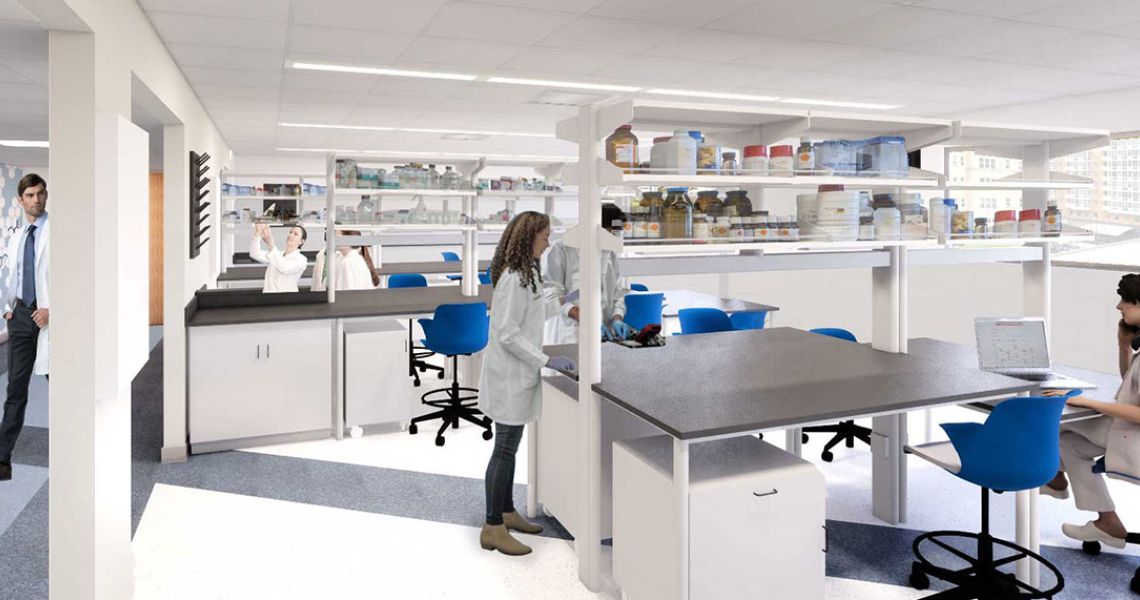The George Washington University (GW) School of Medicine and Health Sciences (SMHS) is investing $3.9 million to convert 13,500 square feet of lab space in Ross Hall into state-of-the-art research facilities. The labs, and programming within the renovated space, will educate the next generation of innovators and support SMHS faculty as they develop new approaches to solve global problems and make discoveries to help improve the lives of millions worldwide.
“There is no better motivation for research discovery than a significant investment into facilities, making them an easier space in which to conduct high impact science. As we work toward pre-eminence in research and discovery at GW, this investment will ensure that Ross Hall remains a core research center on campus. Providing researchers with modern, state-of-the-art facilities will help us support the sciences at SMHS and recruit for the future,” said Robert Miller, PhD, vice president for research at GW and senior associate dean for research at SMHS.
In renovating Ross Hall — an academic building dedicated to medical and health sciences research and education — the university is strengthening long-standing partnerships with technology companies. The new labs will boast cutting-edge technologies, including high-resolution cell imaging, single-cell RNA- sequencing, and live-cell metabolic measurement – providing better tools and more usable space in Ross Hall for the researchers, faculty, and staff, as well as post-doctoral, medical, and health sciences students.
During the last decade, GW’s research funding has grown 80%, increasing the demand and necessity for modern labs capable of supporting cross-disciplinary scientific exploration. Students and faculty now have even greater opportunities to pursue their passions for changing the world. Research conducted in Ross Hall advances human health, expands society’s understanding of nature, and creates new solutions through innovation.
Ross Hall is home to several core facilities on campus, including the Research Pathology Core, the GW Biorepository, the Biomarker and McCormick Genomic and Proteomic Center, and others. The building is also home to the AIDS and Cancer Specimen Resource for the next five years, which is funded through a $22 million grant from the National Institutes of Health.
Learn more about the research being conducted at the School of Medicine and Health Sciences



